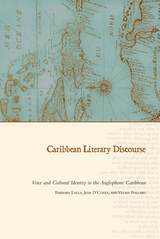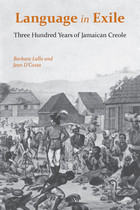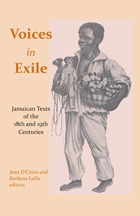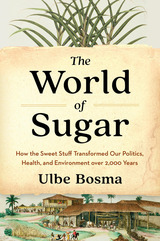3 books about D'Costa, Jean

Caribbean Literary Discourse
Voice and Cultural Identity in the Anglophone Caribbean
Barbara Lalla
University of Alabama Press, 2013
A study of the multicultural, multilingual, and Creolized languages that characterize Caribbean discourse, especially as reflected in the language choices that preoccupy creative writers
Caribbean Literary Discourse opens the challenging world of language choices and literary experiments characteristic of the multicultural and multilingual Caribbean. In these societies, the language of the master— English in Jamaica and Barbados—overlies the Creole languages of the majority. As literary critics and as creative writers, Barbara Lalla, Jean D’Costa, and Velma Pollard engage historical, linguistic, and literary perspectives to investigate the literature bred by this complex history. They trace the rise of local languages and literatures within the English speaking Caribbean, especially as reflected in the language choices of creative writers.
The study engages two problems: first, the historical reality that standard metropolitan English established by British colonialists dominates official economic, cultural, and political affairs in these former colonies, contesting the development of vernacular, Creole, and pidgin dialects even among the region’s indigenous population; and second, the fact that literary discourse developed under such conditions has received scant attention.
Caribbean Literary Discourse explores the language choices that preoccupy creative writers in whose work vernacular discourse displays its multiplicity of origins, its elusive boundaries, and its most vexing issues. The authors address the degree to which language choice highlights political loyalties and tensions; the politics of identity, self-representation, and nationalism; the implications of code-switching—the ability to alternate deliberately between different languages, accents, or dialects—for identity in postcolonial society; the rich rhetorical and literary effects enabled by code-switching and the difficulties of acknowledging or teaching those ranges in traditional education systems; the longstanding interplay between oral and scribal culture; and the predominance of intertextuality in postcolonial and diasporic literature.
Caribbean Literary Discourse opens the challenging world of language choices and literary experiments characteristic of the multicultural and multilingual Caribbean. In these societies, the language of the master— English in Jamaica and Barbados—overlies the Creole languages of the majority. As literary critics and as creative writers, Barbara Lalla, Jean D’Costa, and Velma Pollard engage historical, linguistic, and literary perspectives to investigate the literature bred by this complex history. They trace the rise of local languages and literatures within the English speaking Caribbean, especially as reflected in the language choices of creative writers.
The study engages two problems: first, the historical reality that standard metropolitan English established by British colonialists dominates official economic, cultural, and political affairs in these former colonies, contesting the development of vernacular, Creole, and pidgin dialects even among the region’s indigenous population; and second, the fact that literary discourse developed under such conditions has received scant attention.
Caribbean Literary Discourse explores the language choices that preoccupy creative writers in whose work vernacular discourse displays its multiplicity of origins, its elusive boundaries, and its most vexing issues. The authors address the degree to which language choice highlights political loyalties and tensions; the politics of identity, self-representation, and nationalism; the implications of code-switching—the ability to alternate deliberately between different languages, accents, or dialects—for identity in postcolonial society; the rich rhetorical and literary effects enabled by code-switching and the difficulties of acknowledging or teaching those ranges in traditional education systems; the longstanding interplay between oral and scribal culture; and the predominance of intertextuality in postcolonial and diasporic literature.
[more]

Language in Exile
Three Hundred Years of Jamaican Creole
Barbara Lalla
University of Alabama Press, 2009
"An important addition to studies of the genesis and life of Jamaican Creole as well as other New World creoles such as Gulla. Highlighting the nature of the nonstandard varieties of British English dialects to which the African slaves were exposed, this work presents a refreshingly cogent view of Jamaican Creole features."
--SECOL Review
"The history of Jamaican Creole comes to life through this book. Scholars will analyze its texts, follow the leads it opens up, and argue about refining its interpretations for a long time to come."
--Journal of Pidgin & Creole Languages
"The authors are to be congratulated on this substantial contribution to our understanding of how Jamaican Creole developed. Its value lies not only in the linguistic insights of the authors but also in the rich trove of texts that they have made accessible."
--English World-Wide
"Provides valuable historical and demographic data and sheds light on the origins and development of Jamaican Creole. Lalla and D'Costa offer interesting insights into Creole genesis, not only through their careful mapping of the migrations from Europe and Africa, which constructed the Jamaican society but also through extensive documentation of early texts. . . . Highly valuable to linguists, historians, anthropologists, psychologists, and anyone interested in the Caribbean or in the history of mankind."
--New West Indian Guide
--SECOL Review
"The history of Jamaican Creole comes to life through this book. Scholars will analyze its texts, follow the leads it opens up, and argue about refining its interpretations for a long time to come."
--Journal of Pidgin & Creole Languages
"The authors are to be congratulated on this substantial contribution to our understanding of how Jamaican Creole developed. Its value lies not only in the linguistic insights of the authors but also in the rich trove of texts that they have made accessible."
--English World-Wide
"Provides valuable historical and demographic data and sheds light on the origins and development of Jamaican Creole. Lalla and D'Costa offer interesting insights into Creole genesis, not only through their careful mapping of the migrations from Europe and Africa, which constructed the Jamaican society but also through extensive documentation of early texts. . . . Highly valuable to linguists, historians, anthropologists, psychologists, and anyone interested in the Caribbean or in the history of mankind."
--New West Indian Guide
[more]

Voices in Exile
Jamaican Texts of the 18th and 19th Centuries
Jean D'Costa
University of Alabama Press, 2009
The songs, sermons and other materials collected in this anthology thoroughly characterize and demonstrate the distinctive language and culture that developed when African and European exiles came together on the plantations of Jamaica. Accounts of planters, slave-trading captains, and other testimonies from both the colonial and indigenous population effectively illustrate the unfolding of this unique culture.
[more]
READERS
Browse our collection.
PUBLISHERS
See BiblioVault's publisher services.
STUDENT SERVICES
Files for college accessibility offices.
UChicago Accessibility Resources
home | accessibility | search | about | contact us
BiblioVault ® 2001 - 2025
The University of Chicago Press









